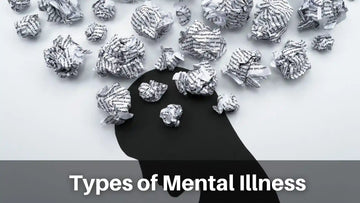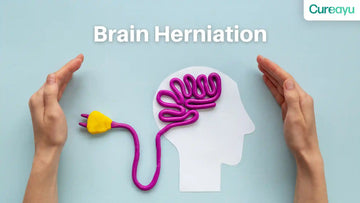In our busy lives, with work, relationships, and personal goals pulling us in different directions, we often forget about taking care of our mental health. We push ourselves too hard, always wanting to be perfect, but we forget to be kind to ourselves. In this article, we'll talk about why being nice to ourselves, called self-compassion, is so important for our mental well-being. We'll also see why taking care of ourselves and feeling good about who we are can make our minds healthier.
Mental Health And Self-Compassion
Mental health is all about how we feel emotionally, how we think, and how we interact with others. It's basically about how well our minds are doing. When our mental health is good, we're happier, more confident, and better able to handle life's ups and downs. But in today's busy world, a lot of people struggle with mental health problems like feeling anxious, sad, or stressed out.
That's where self-compassion comes in. Self-compassion means being kind to ourselves, especially when things are tough. Instead of being hard on ourselves when we make mistakes or things don't go as planned, self-compassion is about treating ourselves with understanding and care, just like we would a friend who's going through a hard time. It's like being our own best friend, cheering ourselves on and comforting ourselves when we need it most. And in a world where mental health issues are so common, having self-compassion can really be a source of comfort and strength.
Also Read: A Deep Dive into Depression Signs, Causes, and Treatments
How Self-Compassion Is Beneficial For Mental Health
Self-compassion is the practice of treating ourselves with kindness and understanding, especially during times of difficulty or failure. Research indicates that individuals who cultivate self-compassion experience lower levels of anxiety and depression, as well as greater resilience to stress. By embracing self-compassion, we create a nurturing inner environment that fosters emotional well-being and helps us bounce back from setbacks more effectively. This approach encourages us to acknowledge our imperfections without harsh self-criticism, leading to greater inner peace and acceptance.
In essence, self-compassion enables us to navigate life's challenges with grace and resilience. It involves offering ourselves the same care and support we would give to a close friend, which can counteract negative self-talk and promote a more positive outlook on ourselves and our experiences. By embracing self-compassion, we cultivate a deeper sense of self-acceptance and kindness, empowering us to thrive amidst life's inevitable ups and downs.
Importance of Self-Care
Self-care is the foundation upon which self-compassion flourishes. It involves prioritizing our physical, emotional, and mental needs, carving out time for activities that replenish and rejuvenate us. In the realm of mental health, self-care is not a luxury but a necessity. Whether it's practicing mindfulness, engaging in hobbies, or seeking professional support, self-care empowers us to nurture our well-being proactively.
Also Read: Overcoming Anxiety Naturally: Causes, Treatment, and Herbal Medicines Unveiled
Basic Steps For Self-Care
- Prioritize Sleep: Getting enough sleep is crucial for recharging both your mind and body. Adequate rest allows your brain to process information, regulate emotions, and repair cells, contributing to improved cognitive function and emotional well-being.
- Nourish Your Body: Eating a balanced diet filled with nutrient-rich foods is essential for fueling your physical and mental health. Nutrients like vitamins, minerals, and antioxidants support brain function, mood regulation, and overall vitality, helping you feel energized and focused throughout the day.
- Engage in Relaxation Techniques: Incorporating relaxation techniques into your daily routine can help alleviate stress and promote relaxation. Practices such as deep breathing exercises, meditation, or yoga encourage the body's relaxation response, reducing cortisol levels and fostering a sense of calm and tranquility.
- Set Boundaries: Learning to set boundaries is vital for preserving your energy and prioritizing your well-being. Saying no to activities or commitments that overwhelm you allows you to focus on activities that bring you joy and fulfillment, fostering a healthier work-life balance and reducing feelings of stress and burnout.
- Seek Support: Don't hesitate to reach out to friends, family, or mental health professionals when you need assistance or guidance. Building a support network can provide emotional validation, practical advice, and a sense of connection, helping you navigate life's challenges with greater resilience and confidence.
How to Achieve Enhanced Self-Esteem
Self-esteem refers to the value and worth we attribute to ourselves. Cultivating enhanced self-esteem involves recognizing our strengths, embracing our imperfections, and fostering a positive self-image. Here are some strategies to boost self-esteem:
- Practice Self-Compassion: Treat yourself with kindness and understanding, especially during challenging times.
- Celebrate Achievements: Acknowledge your accomplishments, no matter how small, and celebrate your progress.
- Challenge Negative Thoughts: Reframe self-critical thoughts into more constructive and affirming ones.
- Focus on Personal Growth: Set realistic goals and take steps towards self-improvement, focusing on progress rather than perfection.
Also Read: Reduce Stress and Improve Sleep Quality – Benefits Of Deep Breathing & How To Practice It
Conclusion
In the journey towards mental well-being, self-compassion serves as a guiding light, illuminating the path towards greater resilience, acceptance, and inner peace. By prioritizing self-care, nurturing self-esteem, and embracing our humanity with compassion, we can cultivate a healthier mind and a more fulfilling life. Let us embark on this journey together, supporting ourselves and each other with kindness and understanding every step of the way. Remember, your mental health matters, and you deserve the compassion and care you so freely give to others.












